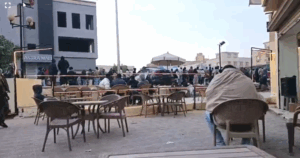AU to challenge ICC over Sudan president
The African Union has decided to seek the opinion on immunity of heads of state from a top UN court.
The 30th AU Summit concluded this week in Addis Ababa with the regional body agreeing to request an advisory opinion from the UN International Court of Justice on the question of immunities of heads of state, and government and other senior officials.
The move comes after years of legal wrangling about the execution of the International Criminal Court (ICC) arrest warrants for President Omar Al Bashir. Since the ICC issued the arrest warrants in 2009 and 2010, the Sudanese president has travelled to several countries that are states parties to the Rome Statute, the ICC’s founding treaty.
 President Omar Al Bashir (albashir.sd)
President Omar Al Bashir (albashir.sd)
The African Union has decided to seek the opinion on immunity of heads of state from a top UN court.
The 30th AU Summit concluded this week in Addis Ababa with the regional body agreeing to request an advisory opinion from the UN International Court of Justice on the question of immunities of heads of state, and government and other senior officials.
The move comes after years of legal wrangling about the execution of the International Criminal Court (ICC) arrest warrants for President Omar Al Bashir. Since the ICC issued the arrest warrants in 2009 and 2010, the Sudanese president has travelled to several countries that are states parties to the Rome Statute, the ICC’s founding treaty.
The Coalition for the ICC said in a statement on Thursday that the AU is seeking clarity on relationship between Rome Statute Article 27 (irrelevance of official capacity) and Article 98 (cooperation with respect to waiver of immunity and consent to surrender) and the obligations of ICC states parties under wider international law.
Indicted
In 2009 and 2010 the ICC in The Hague issued two arrest warrants against Al Bashir for war crimes, crimes against humanity, and genocide in Darfur.
In July 2017, ICC judges found that South Africa had failed to comply with its obligations under the Rome Statute to arrest the Sudanese president during a 2015 visit. The AU supports South Africa’s position that competing obligations under customary international law trump obligations under ICC law, and has expressed its deep concern with the ICC decision.
In a briefing to the UN Security Council on the situation in Darfur in December 2017, ICC Prosecutor Fatou Bensouda voiced frustration at the international community’s lack of cooperation with the ICC concerning the apprehension of Al Bashir.
Meeting
UN Secretary-General Antonio Guterres attended the AU Summit, and met with Al Bashir to discuss issues such as the joint UN-AU peacekeeping Mission in Darfur (Unamid).
According to Sudan’s FA Minister Ibrahim Ghandour, quoted on President Al Bashir’s website, the UN chief praised Khartoum’s efforts to achieve peace in the country.
In reply to questions from the press during the daily briefing in New York on Wednesday, UN Deputy Spokesman Farhan Haq said that the meeting between Guterres and Al Bashir occurred out of “operational necessity”, and that “the rules of procedures were followed” in terms of informing the ICC prosecution of such a meeting.











 and then
and then